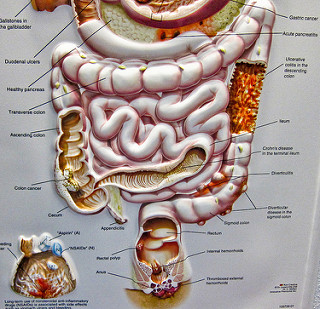Triggering Your Fat Burning Zone
It's the New Year, and aside from making more money, the biggest concern for most people is to lose weight, have more energy, and become healthier. It's unfortunate, but two-thirds of Americans are overweight and struggling with various health complaints such as fatigue, arthritis, diabetes, high blood pressure, high cholesterol, insomnia, and depression. According to recent statistics, obesity and the health-related problems associated with the extra weight have now exceeded the expense that smoking has done to our society.
The Diet and Exercise Paradigm...
For years, the common thinking was that in order to lose weight, all you had to do was decrease the amount of calories in your diet and the weight would come off. Others have taught that the amount of fats or carbohydrates in your diet was the answer. Exercise has always been part of the answer, but what type of exercise? Do we do low or high intensity exercise? Is weight training necessary, or can I get by with only aerobic exercise?
The only thing we know for sure is that for the last 30-plus years, we've become more overweight and more people are struggling with diabetes, including our kids. The number of people struggling with fatigue, hot flashes, heart disease, asthma, arthritis, depression, insomnia, and the list goes on has only increased, which leads me to the conclusion that much of the advice we've been given may not be so accurate.
However, our weight gain problem is more than simply diet and exercise. People have been dieting and exercising for years and are still struggling with their weight, which tells us there is another piece to the puzzle. The often overlooked piece of the puzzle is stress and how it triggers various hormones in our bodies to either burn or store fat. We have to remember that our bodies burn calories in order to produce energy.
Stress the Missing Piece of the Puzzle...
Stress has become a number-one problem here in America, and many people consider themselves under excessive stress. Our lives have become so fast-paced, so go-go, so little time to relax and enjoy life because we have all become so over-booked. Stress is a huge part of this whole weight loss problem because of the hormones it produces. Many hormones in our bodies are designed to burn fat, other hormones are designed to store fat, and still other hormones are designed to burn carbohydrates and proteins. The question we need to start asking is which hormones are our bodies producing more of? Are we producing more of the storing or burning hormones?
When you are under stress your adrenal glands will produce additional cortisol and adrenaline. These two hormones trigger your metabolism to burn carbohydrates and lean muscle, not stored body fat. The constant production of these two hormones will inhibit your body from breaking down stored body fat. It is the over-riding reason why people have a hard time losing weight and keeping their energy up, as well as, why losing weight is more than simple diet and exercise.
If your adrenals are overworked and you are struggling with adrenal fatigue and exhaustion due to constant stress you probably need to address the adrenal problem first. If you do that you will allow your metabolism to function the way it is designed and you stand a much better chance at losing the unwanted weight and keeping it off.
Asking the Right Questions...
I've heard you don't need to have the right answer if you don't ask the right question. Merely looking at the number of calories you consume or burn doesn't take into consideration whether or not our bodies are burning calories from stored body fats or from carbohydrates and proteins. Our bodies were designed to burn calories for the production of energy from fats, carbohydrates, or protein. So, when you get off that treadmill or stair-stepper and the machine says you burned 300 calories, does that mean you burned those 300 calories from your stored body fat? You could have easily burned those calories from the breakdown of lean muscle tissue, which is common, or from the breakdown of carbohydrates you last ate.
Whatever the case, to simply believe you burned 300 calories from stored body fat may not be accurate. Counting calories and fat grams and carbohydrates doesn't take into consideration how your metabolism is functioning and whether or not you are staying in your 'fat-burning' zone throughout the day.
Determining if you are staying in your fat-burning zone throughout the day is relatively simple. Ask yourself,
- Do you struggle with cravings or low blood sugar?
- Do you skip breakfast or meals?
- Do you eat lots of refined, processed foods?
- Do you struggle with mid-morning or afternoon slumps?
- Do you become irritable or lightheaded if meals are missed or delayed?
- Do you need to eat every two to three hours to maintain your blood sugar?
- Do you have a hard time ¡¥staying¡¦ asleep?
If you answered "yes" to a couple of these questions, that¡¦s an obvious signal that your metabolism is not functioning the way it was designed to and is not burning fats for energy. Instead, your hormones that regulate your metabolism are triggering your body to burn carbohydrates and proteins for energy. This is a common problem and another reason why so many people struggle with fatigue; they are not burning the right type of fuel for energy. When you burn fats for energy, you get more than two-and-a-half times more energy than you do when you burn carbohydrates and proteins.
To successfully lose weight and keep it off, you need to regulate and balance those hormones so your metabolism will function the way it was designed to. When you do that, you restore normal metabolic function, you get back in that fat-burning zone, and your body will start burning those unwanted pounds.
We'll talk more about the specifics in the weeks to come, but if you want to learn more, let me encourage you to listen to our radio show, Action Steps for Health, or get a copy of my book, To Burn or Not to Burn, Fat is the Question. If you want to see if you are in your fat-burning zone, I invite you to take our online health quizzes that you can find on www.DrLenLopez.com.
-
Belly Fat Exercises
Belly fat. Dont you just love to hate it
-
Guidelines On Special Weight Loss Solution Not Shown
The internet is full of weight loss plans and weight loss diets that a
-
Hoodia Gordonii, Is It Really The Weight Loss Miracle They Say?
Hoodia Gordonii is a desert plant native to the southern regions of A
-
Best Weight Loss Diet Plan
Simple weight loss diet plans seem to ha
-
Can You Really Skip Breakfast? A Nutritionist Answers
-
7 Easy Ways For Beginners To Lose More Body Fat
Here are 7 easy to use tips for beginner
- DON'T MISS
- Which one will give me my “sexy” back?
- A Thorough MLM Research Will Bring You To The Best NM Authors
- Put On Your Walking Shoes For Fitness And Weight Loss
- Some Straight Talk About LowCarbohydrates And Your Health
- Timing Is Everything Part 1
- Facts You Need To Know About Belly Fat
- The 4 Fears That Could Be Preventing You From Losing Weight
- Child Obesity And Depression Are Not Alien To One Another
- How To Evaluate An Effective Weight Loss Product Review
- Weight loss tips for teenage girls




